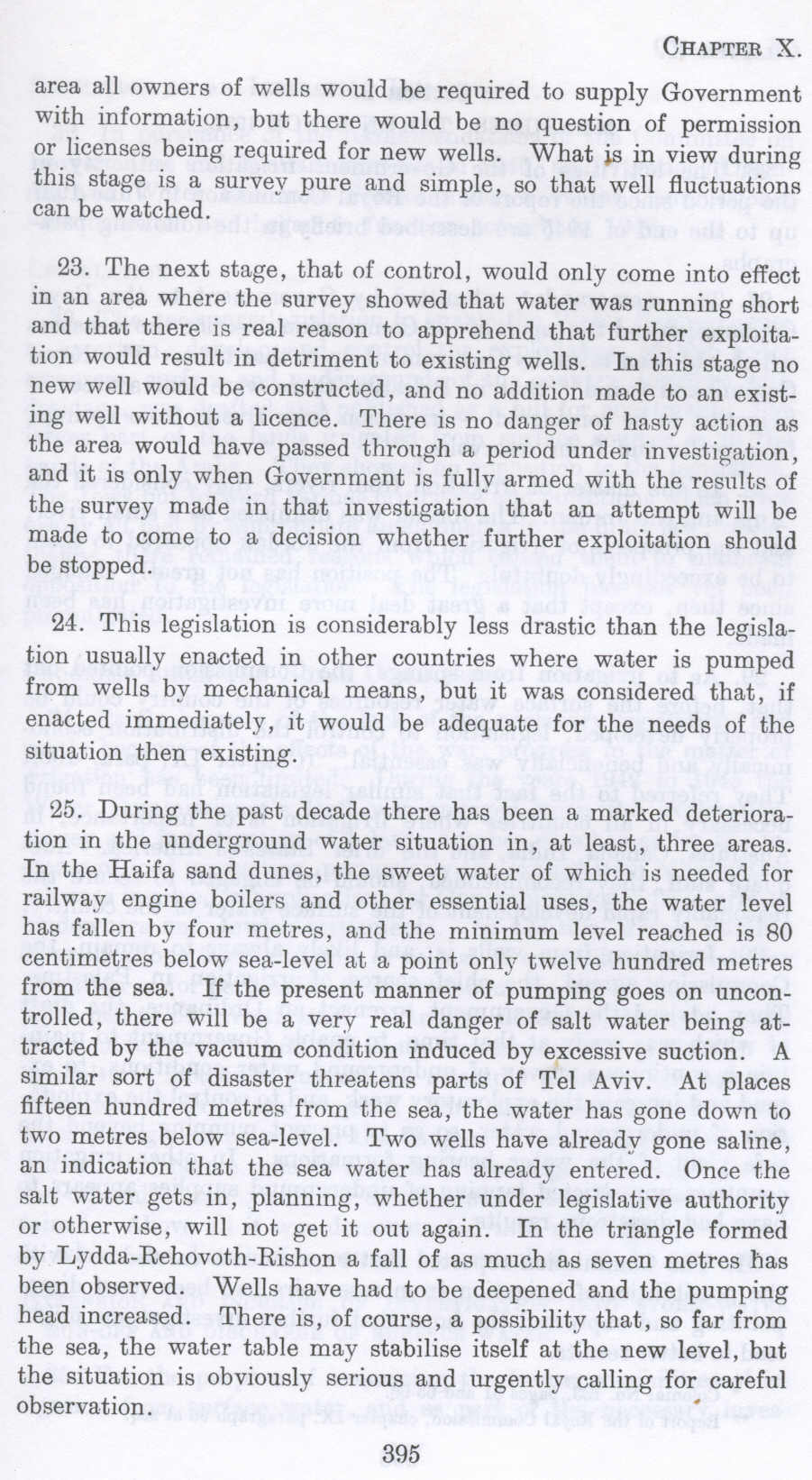| Prev | Next |  |
| Prev | Next |
| PalestineRemembered | About Us | Oral History | العربية | |
| Pictures | Zionist FAQs | Haavara | Maps | |
| Search |
| Camps |
| Districts |
| Acre |
| Baysan |
| Beersheba |
| Bethlehem |
| Gaza |
| Haifa |
| Hebron |
| Jaffa |
| Jericho |
| Jerusalem |
| Jinin |
| Nablus |
| Nazareth |
| Ramallah |
| al-Ramla |
| Safad |
| Tiberias |
| Tulkarm |
| Donate |
| Contact |
| Profile |
| Videos |
British Mandate: A Survey of Palestine: Volume I - Page 395 |
Disclaimer
The above documents, article, interviews, movies, podcasts, or stories reflects solely the research and opinions of its authors. PalestineRemembered.com makes its best effort to validate its contents.


Post Your Comment
*It should be NOTED that your email address won't be shared, and all communications between members will be routed via the website's mail server.
area all owners of wells would be required to supply Government with information, but there would be no question of permission or licenses being required for new wells. What is in view during this stage is a survey pure and simple, so that well fluctuations can be watched.
23. The next stage, that of control, would only come into effect in an area where the survey showed that water was running short and that there is real reason to apprehend that further exploitation would result in detriment to existing wells. In this stage no new well would be constructed, and no addition made to an existing well without a licence. There is no danger of hasty action as the area would have passed through a period under investigation, and it is only when Government is fully armed with the results of the survey made in that investigation that an attempt will be made to come to a decision whether further exploitation should be stopped.
24. This legislation is considerably less drastic than the legislation usually enacted in other countries where water is pumped from wells by mechanical means, but it was considered that, if enacted immediately, it would be adequate for the needs of the situation then existing.
25. During the past decade there has been a marked deterioration in the underground water situation in, at least, three areas. In the Haifa sand dunes, the sweet water of which is needed for railway engine boilers and other essential uses, the water level has fallen by four metres, and the minimum level reached is 80 centimetres below sea-level at a point only twelve hundred metres from the sea. If the present manner of pumping goes on uncontrolled, there will be a very real danger of salt water being attracted by the vacuum condition induced by excessive suction. A similar sort of disaster threatens parts of Tel Aviv. At places fifteen hundred metres from the sea, the water has gone down to two metres below sea-level. Two wells have already gone saline, an indication that the sea water has already entered. Once the salt water gets in, planning, whether under legislative authority or otherwise, will not get it out again. In the triangle formed by Lydda-Rehovoth-Risbon a fall of as much as seven metres has been observed. Wells have had to be deepened and the pumping bead increased. There is, of course, a possibility that, so far from the sea, the water table may stabilise itself at the new level, but the situation is obviously serious and urgently calling for careful observation.
Page 395